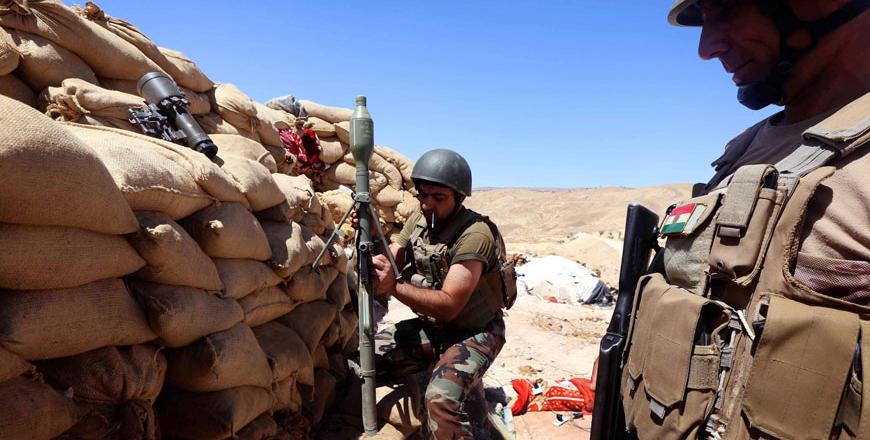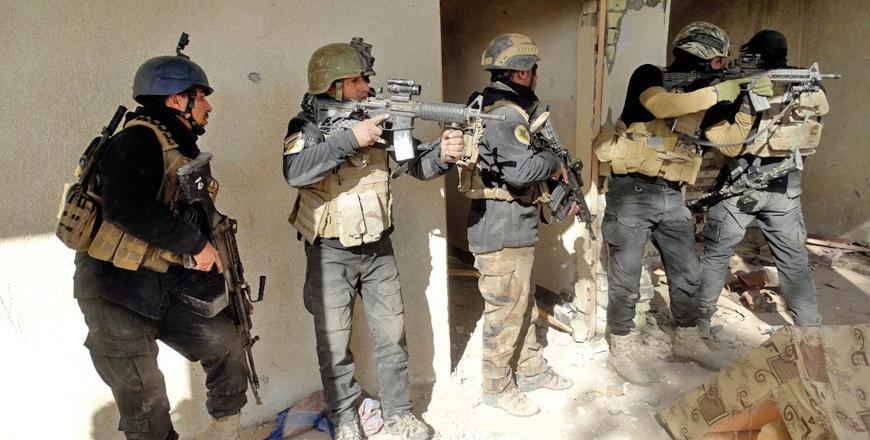You are here
Probe finds Maliki, others responsible for Mosul fall
By AFP - Aug 16,2015 - Last updated at Aug 16,2015
BAGHDAD — An Iraqi parliamentary investigation found ex-premier Nouri Al Maliki and other officials responsible for jihadists overrunning second city Mosul, in a report being sent for possible legal action, lawmakers said Sunday.
While various top commanders and political leaders have long been blamed for the Daesh terror group's disastrous takeover of the capital of Nineveh province, the investigative committee's report is the first time they have been named officially.
Committee member MP Abdulrahim Al Shammari said that Maliki, who was prime minister from 2006 until last year, was among those named, as did another member who declined to be identified.
The inclusion of Maliki's name — who is now vice president — was a source of controversy on the committee, with his Dawa Party pushing for it to be left out.
Various former senior officials were also named in the report detailing the committee's findings, which has not been publicly released.
An MP on the committee said these include defence minister Saadun Al Dulaimi, army chief-of-staff Babaker Zebari, his deputy Aboud Qanbar, ground forces commander Ali Ghaidan, Nineveh operations command chief Mahdi Al Gharawi and the province's governor, Atheel Al Nujaifi.
The report was presented Sunday to parliament speaker Salim Al Juburi, who said it will be sent to the prosecutor general for legal action.
“No one is above the law and the questioning of the people, and the judiciary will punish those” responsible, Juburi said in a statement.
Daesh launched a devastating offensive on June 9 last year, overrunning Mosul the next day and then sweeping through large areas north and west of Baghdad.
Multiple Iraqi divisions collapsed during the initial assault in the north, in some cases abandoning weapons and other equipment which the jihadists then used to further their drive.
Possible Ramadi prosecutions
Maliki is widely viewed as having exacerbated sectarian tensions between the country’s Shiite majority and its Sunni Arab minority.
Widespread discontent among Sunni Arabs, who say they were marginalised and targeted by Maliki’s government, played a major role in aggravating the security situation in Iraq, culminating in the jihadist rout.
He also appointed commanders based on personal loyalty rather than competence, and was commander-in-chief of the armed forces during two years in which the Iraqi military did not carry out necessary training, leading to a decline in skills.
Earlier on Sunday, Prime Minister Haider Al Abadi’s office announced that he had cleared the way for the military prosecution of senior commanders responsible for a military disaster in Ramadi, a city west of Baghdad.
Daesh seized Ramadi in May, after government forces had held out against militants there for more than a year.
Abadi approved “decisions of the investigative commission on the withdrawal of the Anbar operations command and units attached to it from the city of Ramadi”, his office said in a statement.
Those include “referring a number of the leaders to the military judiciary for leaving their positions without orders and contrary to instructions [and] despite the issuance of a number of orders not to withdraw”, it said.
Abadi previously said that forces in Ramadi “had to resist, and if they had resisted, we would not have lost Ramadi”.
And a senior British military officer in a US-led anti-jihadist coalition, Brigadier Christopher Ghika, said the city “was lost because the Iraqi commander in Ramadi elected to withdraw”.
“In other words, if he had elected to stay, he would still be there today,” Ghika said.
Related Articles
BAGHDAD — Iraq's parliament on Monday referred to the public prosecutor a report calling for the trial of former prime minister Nouri Al Mal
BAGHDAD/BEIRUT — Iraq's former prime minister Nouri Al Maliki on Tuesday denounced as worthless a parliamentary report which blamed him and
RAMADI — Iraq declared the city of Ramadi liberated from the Daesh terror group on Monday and raised the national flag over its government c














